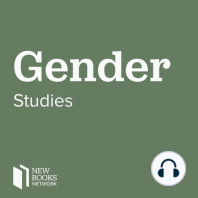47 min listen

Xiaofei Kang, "Enchanted Revolution: Ghosts, Shamans, and Gender Politics in Chinese Communist Propaganda, 1942-1953" (Oxford UP, 2023)
Xiaofei Kang, "Enchanted Revolution: Ghosts, Shamans, and Gender Politics in Chinese Communist Propaganda, 1942-1953" (Oxford UP, 2023)
ratings:
Length:
84 minutes
Released:
Apr 9, 2024
Format:
Podcast episode
Description
China’s communist revolution has an intricate relationship with gender and religion. In Enchanted Revolution: Ghosts, Shamans, and Gender Politics in Chinese Communist Propaganda, 1942-1953 (Oxford UP, 2023), Xiaofei Kang moves the two themes to the center stage in the Chinese Revolution. It examines the Communist Party’s first anti-superstition campaign in its wartime headquarters of Yan’an, the holy land of the Maoist revolution. The book argues that religion was not a mere adversary for the revolution; it also served as a model with which the Party mobilized support and constructed legitimacy. In its rise from rural backwaters to national dominance, the Party attacked “superstitions” that had supported the foundations of Chinese religious life. At the same time, Party propaganda co-opted the same religious resources for its own political ends. In this parallel and often paradoxical process, the persuasive power of Party propaganda relied heavily on recasting the cosmic forces of yin and yang that sustained the traditional gender hierarchy and ritual order. Furthermore, revolutionary art and literature revamped old narratives of female ghosts and ritual exorcism to inject the people with a new hegemonic vision of the Party-state endowed with both scientific potency and the heavenly mandate. Gendered language and symbolism in Chinese religion thus remained central to inspiring pathos, ethos, and logos for the revolution. The interplay of religion, gender, and revolution holds historical and contemporary significance of the Maoist legacy in contemporary China. It also offers insights into the transformative power of propaganda in global politics.
Xiaofei Kang is Professor in the Department of Religion at the George Washington University. Her research focuses on gender, ethnicity, and Chinese religions in traditional and modern China. She is the author of The Cult of the Fox: Power, Gender, and Popular Religion in Late Imperial and Modern China (Columbia University Press, 2006). She co-authored (with Donald S. Sutton) Contesting the Yellow Dragon: Ethnicity, Religion and the State in the Sino-Tibetan Borderland (Brill, 2016), and co-edited (with Jia Jinhua and Ping Yao) Gendering Chinese Religion: Subject, Identity and Body (SUNY Press, 2014).
Yadong Li is a PhD student in anthropology at Tulane University. His research interests lie at the intersection of the anthropology of state, the anthropology of time, hope studies, and post-structuralist philosophy. More details about his scholarship and research interests can be found here.
Learn more about your ad choices. Visit megaphone.fm/adchoices
Support our show by becoming a premium member! https://newbooksnetwork.supportingcast.fm/gender-studies
Xiaofei Kang is Professor in the Department of Religion at the George Washington University. Her research focuses on gender, ethnicity, and Chinese religions in traditional and modern China. She is the author of The Cult of the Fox: Power, Gender, and Popular Religion in Late Imperial and Modern China (Columbia University Press, 2006). She co-authored (with Donald S. Sutton) Contesting the Yellow Dragon: Ethnicity, Religion and the State in the Sino-Tibetan Borderland (Brill, 2016), and co-edited (with Jia Jinhua and Ping Yao) Gendering Chinese Religion: Subject, Identity and Body (SUNY Press, 2014).
Yadong Li is a PhD student in anthropology at Tulane University. His research interests lie at the intersection of the anthropology of state, the anthropology of time, hope studies, and post-structuralist philosophy. More details about his scholarship and research interests can be found here.
Learn more about your ad choices. Visit megaphone.fm/adchoices
Support our show by becoming a premium member! https://newbooksnetwork.supportingcast.fm/gender-studies
Released:
Apr 9, 2024
Format:
Podcast episode
Titles in the series (100)
Ute Hüsken, "Laughter, Creativity, and Perseverance: Female Agency in Buddhism and Hinduism" (Oxford UP, 2022): An interview with Ute Hüsken by New Books in Gender